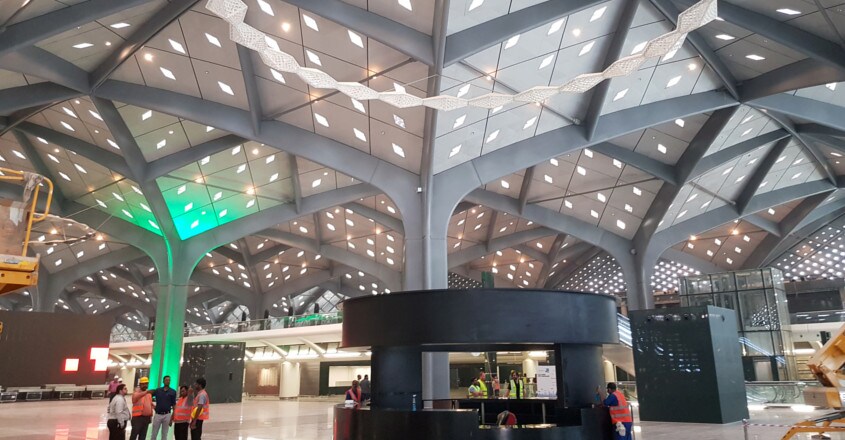Saudi Arabia opens high-speed train linking Mecca and Medina

Mail This Article
Jeddah, Saudi Arabia: Saudi Arabia's King Salman on Tuesday inaugurated a 6.7 billion euro ($7.87 billion) high-speed rail linking the two holiest cities in Islam, Mecca and Medina.
The 450-km Haramain Railway connecting Mecca and Medina with the Red Sea coastal city of Jeddah is one of the largest transport projects in the Middle East, targeting nearly 60 million passengers annually. Commercial operations are set to begin next week.
"The journey between the Haramain (two holy mosques) is now shorter and easier than at any time before," Transport minister Nabil al-Amoudi told dignitaries gathered at the Jeddah station. "The project highlights the kingdom's commitment to serving Islam and Muslims."
Pilgrimage is the backbone of a plan to expand tourism under economic reforms announced two years ago by Crown Prince Mohammed bin Salman to diversify the economy. The haj, a journey every able-bodied Muslim who can afford it must perform once in a lifetime, can be a profound experience.
It is also big business for Saudi Arabia. The haj and the year-round lesser pilgrimage, umrah, generate billions of dollars in revenues from worshippers’ lodging, transport, gifts, food and fees.
The new rail link was built by a Spanish-led consortium and financed by the kingdom's sovereign wealth fund, the Public Investment Fund. It halves travel time between Mecca, the spiritual heart of Islam, and Medina, its second most sacred site.
Project manager Mohammed Fallatah said the train would offer fast and reliable transportation to pilgrims as well as Saudis and foreign residents.
"The traveller will be comfortable. He can read books or magazines or enjoy watching the screens in business class, have a coffee or a light meal," he said in an interview ahead of Tuesday's ceremony.
The authorities hope the train will also stimulate growth of King Abdullah Economic City (KAEC), a massive business zone that was initiated under the previous ruler but remains relatively empty.
It will eventually link up with a new terminal at Jeddah airport, which has already started serving select domestic routes and will take over all flights by early next year.

Fatallah said further expansion could include connecting to a planned east-west train between the capital Riyadh and Jeddah.
Pilgrims comprise the bulk of Saudi Arabia’s 20 million annual foreign visitors, apart from workers and business travellers. More than two million came for this year’s haj and 6.5 million performed umrah in 2017.
Officials aim to increase the number of umrah and haj pilgrims to 15 million and five million respectively by 2020, and hope to double the umrah number again to 30 million by 2030.
In addition to public transit, Saudi Arabia is investing tens of billions of dollars in mega-hotels and a Grand Mosque restoration in Mecca.
The Faisalia project, running from the edge of Mecca towards the Red Sea, aims to attract visitors to coastal getaways and Islamic research centres.
Mecca governor Prince Khalid al-Faisal, a nephew of the king and one of his closest advisers, anticipates that the initiatives will contribute to social and cultural development alongside economic growth.
"We do not seek only to expand and develop. We want to expand and develop with distinction," he said in an interview.
"We want to begin from the point that others have already reached, not the point from which they began."

